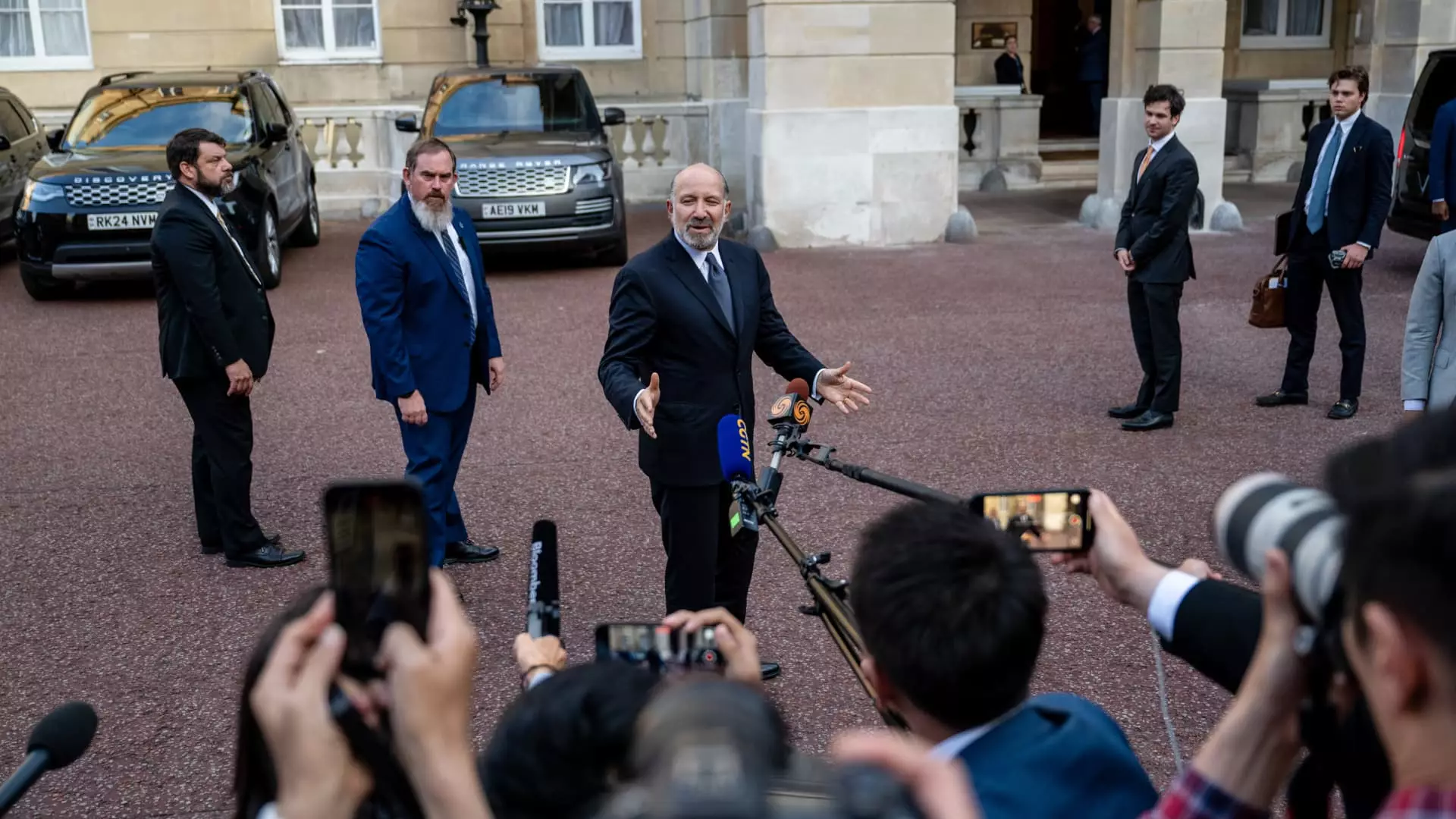In a world brimming with apprehension regarding geopolitical relationships, the recent announcement of a trade agreement between the U.S. and China seems to echo a faint glimmer of hope. After two days of intense negotiations in London, representatives from both nations proclaimed that they had achieved a framework ready for implementation. Yet, beneath the veneer of this seemingly positive step lies an intricate tapestry of uncertainty woven by historical tensions and mutual distrust.
U.S. Commerce Secretary Howard Lutnick’s pronouncement of a framework to uphold the Geneva consensus reveals a dissonance between optimism and realism. In a similar vein, China’s Vice Minister of Commerce, Li Chenggang, mirrored this sentiment. The phone conversation between President Trump and President Xi Jinping offered a sense of stabilization, yet the complexities that underlie this relationship cannot be overstated. Historically, both nations have been quick to accuse one another of transgressions, dampening any illusion that a solid foundation has been established.
The Elusive Path to Progress
This latest agreement marks a 90-day suspension of reciprocal tariffs—an essential step that may provide short-term relief but fails to address the deeper issues at play. The reality that both nations must return to their capitals to seek approval from their leaders hints at a precarious diplomatic landscape. Senior economist Jianwei Xu from Natixis aptly noted that while the commitment to de-escalation could be perceived as a positive development, uncertainty looms over whether any solid agreements will emerge.
Trade, particularly in this context, should not be seen merely as a transactional relationship. It involves multifaceted interactions that impact global economies. The fact that these negotiations hinge on leverage rather than mutual interests raises red flags about their sustainability. U.S. Treasury Secretary Scott Bessent’s haste to return to Congress underscores the political stakes in play. As representatives scramble for approval, the odds seem stacked against any immediate transformative progress.
Echoes of Distrust in Economic Engagement
Dissecting the nuances of this trade agreement reveals a fundamental fragility in U.S.-China relations. Scott Kennedy from the Center for Strategic and International Studies emphasizes that the vitality of the deal relies on the leverage exerted by both parties rather than on shared principles. This dynamic is concerning, as it suggests that the relationship is akin to a tightly wound spring—prepared to snap under pressure at any moment.
Even amidst this fragile pact, issues such as rare-earth exports loom large. The expectation that these economic facts will be addressed through the framework implementation is commendable yet naïve. America’s restrictions on technological sales to China and the anticipation of China rolling back its bans reveal a transactional hyper-focus that obscures the underlying political ramifications. The delicate balance between cooperation and competition could easily be shattered by unilateral decisions, reinforcing the cyclical nature of this relationship.
The Role of Perception and Media in Shaping Trust
The media’s reaction to these developments offers insight into the broader implications of the trade talks. While Chinese state media frequently short-changed the announcement of the agreement, U.S. outlets highlighted the optimism surrounding the negotiations. This disparity in narrative construction raises questions: Are both nations genuinely committed to building trust, or are they merely playing to their domestic galleries?
The cautious language used by officials, compounded with the reluctance of Chinese reports to celebrate the commitments made, serves to highlight an essential truth: trust remains a scarce commodity. In today’s interconnected world, perceptions shape decisions as much as facts do. As investors react to the details—or lack thereof—of this framework, the ripple effects on stock markets have the potential to magnify these fragile trust issues.
In an era of economic interdependence, the continuous cycle of progress followed by setbacks in U.S.-China relations hints at a larger narrative: the tension between cooperation and contention will persist, making genuine trust harder to build. One cannot ignore the conundrum this presents for both countries as they navigate a complex world charged with expectations and threats alike.

